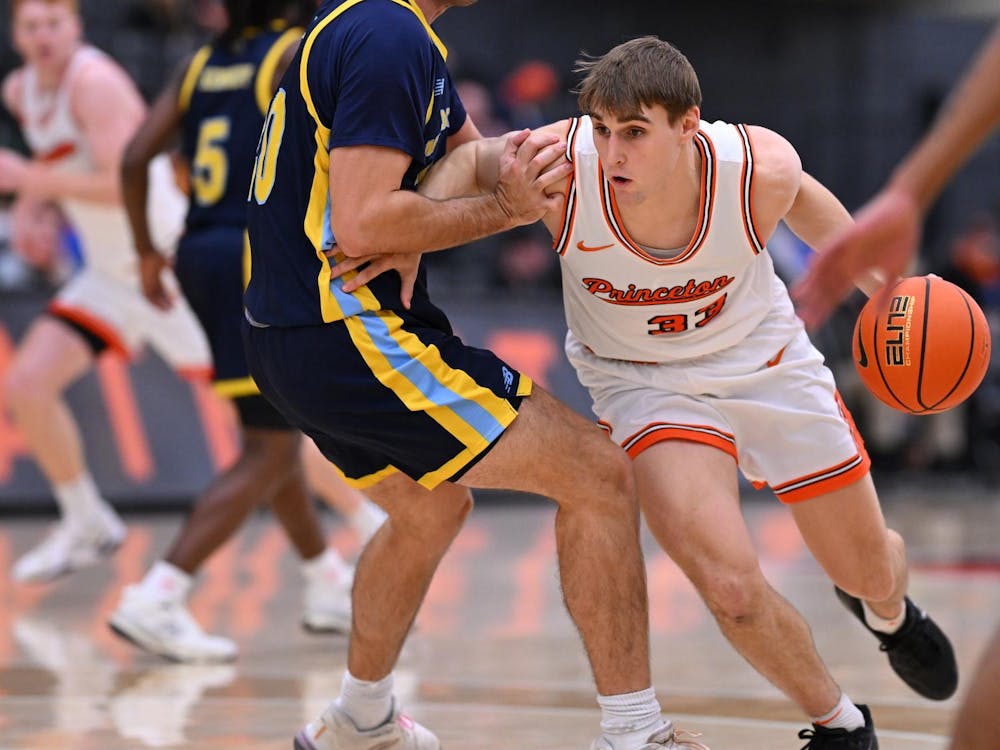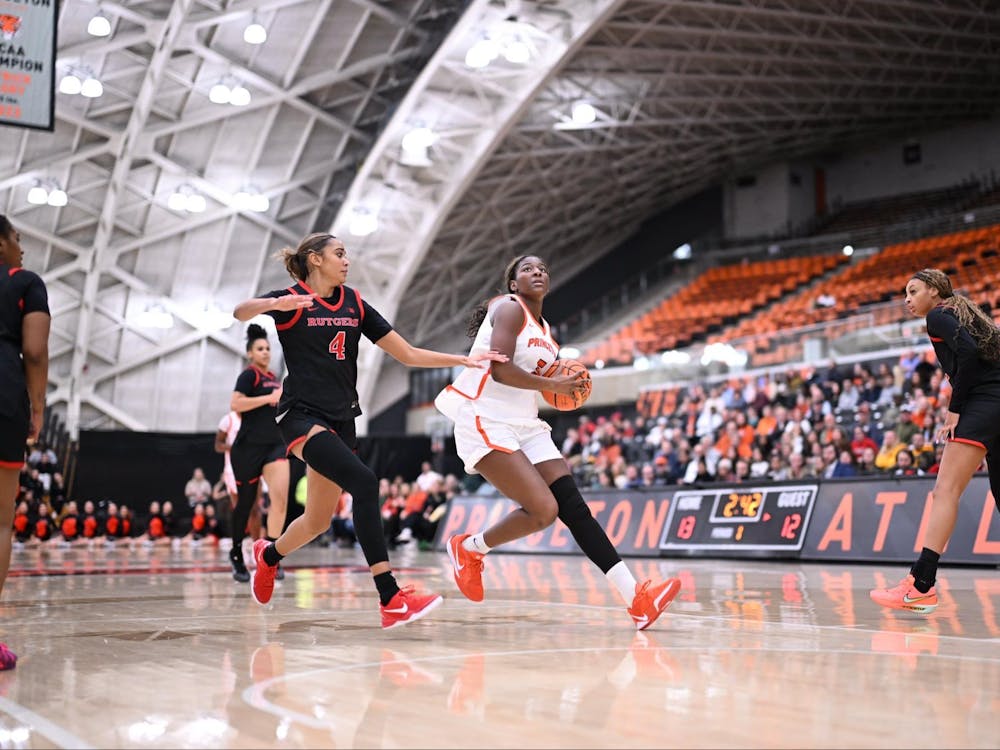'Prince' staff writers Chandra Russell and Blaire Russell recently sat down with women's basketball's head coach Richard Barron.
'Prince': Where did you coach before you came to Princeton?
Barron: I coached for nine years total at the University of the South, in Sewanee, Tenn. I was assistant men's coach for the first four years and the women's head coach for five.
P: Did you play basketball yourself?
B: Yes, I played at Kenyon, Ohio.
P: How did your team do last year?
B: We were ranked twelfth in the nation last year. We set school records for wins in the last three seasons.
P: Are there any major differences between coaching at a Division III school like Sewanee and coaching here at Princeton? Or do you think you can use the same coaching strategies here that made your Sewanee team so successful?

B: No, [the schools] are not very different at all. But there are a lot of things we did with last year's team at Sewanee that we just can't do here yet. That doesn't mean necessarily that we don't want to.
P: Do you have any anxieties about trying to reform a 2-25 team?
B: No, because I know how good we can be in the long run. I feel like I've had great support from the community, the players themselves, the administration, and I don't think anyone expects a miracle.
I think they are out there to find somebody who knows that it can be done and who sees potential in his players, and I certainly do. I don't think we're going be a 2-25 team this year — I don't know we'll be any better than 3-and-24, but I certainly think we're going to be better than 2-25.

P: How is this year's team different from last year's?
B: Well, we lost one senior starter, and there were three players who quit the team. We added two freshmen. So we added a few faces and there are some gone, but we feel like we're getting that much closer to the right group of people that want to get it done. That's what it takes - getting people who are committed, excited about it, ready to work, and everyday we get a little closer to finding out who those people are.
P: How long has the team been practicing? Have you been able in that time to get a sense of the team's particular strengths that you want to exploit throughout the season?
B: We've been practicing for a month now - since Oct. 26. I see a lot of potential in the team that's returning. The players are all kids who mix well and who work hard and will continue to get better and better and better. But before we can exploit [a strength like] quickness we have to develop it.
I don't even know if we're a very quick team right now, but I do know that there are always skills that can compensate for lack of or relative lack of athleticism. I think our kids are, compared to high school athletics, great athletes, but compared to other Division I college basketball teams - like the University of Washington - we're not going to beat them on pure athleticism. But we also might be able to be a better team by playing with better skills, better patience, with better understanding of the game, with better exhibition. So we have to develop those things first.
P: From a coach's perspective, what are the best ways to develop those skills?
B: We have to continue to work on our athleticism in the weight room and off the court. I think there has not been a real commitment to developing themselves as athletes like there needs to be. One of the great things about the Ivy League is there are rules to protect student athletes from being exploited. But one of the worst things about the Ivy League is that there are rules that protect athletes from being exploited. I mean there's not a structure there to push them to be their best. So hopefully we can develop a culture where they want to do that and work hard.
P: I understand that the team used to run under Liz Feeley, and the men's team still does, the so-called "Princeton offense," and that you have a very different "run-and shoot" style. Can you comment a little on that, and are there any other changes you are making in the team's style of play?
B: We have a new offense, defense, everything. Last year's offense, which the men's team runs really well, involves a lot of hard cutting and is a very mobile offense. It's also a very difficult offense and one that I don't coach. The one I like is one that involves a lot of defense.
We exploit other teams' players by making them run up and down the court and wear them out. And we take good shots when we can get them. We don't want to just shoot the ball for the sake of shooting it so it's not exactly "run and gun," but we certainly want to be opportunistic about the times we can get a fast break.
If we can create easy shots off of our defense we want to do that because we're not made up of great one-on-one players and we're not going to be able to create a lot of shots for ourselves in a half court offense. We want to get a lot of fast break opportunities when we can before their defense sets up.
That also lets us play more and more people, because we have to bring in fresh players who are able to wear down the opponents who are maybe trying to play us with a five-or six-person rotation.
P: Do you have any long-term plans about how long you expect to coach at Princeton?
B: I certainly don't have any plans to leave. It could be for a very long time. I was at Sewanee for nine years, and it took a very special situation to make me leave there - and that was Princeton. There's nothing out there more special than Princeton.
P: What do you see as a realistic goal for this season?
B: We haven't talked much about wins and losses, and I don't know enough about our competition to say that. It always sounds like I'm dodging the question, but everybody asks, "What do you expect after a 2-25 season?" and I just don't know. But it is reasonable to expect daily improvement. And that's what we're looking for - to get better every day. As coaches we're trying to focus on that. Maybe we'll win a game or two, and it's hard not to get caught up in that, but it's not going to be a fast process. It takes more than that.







